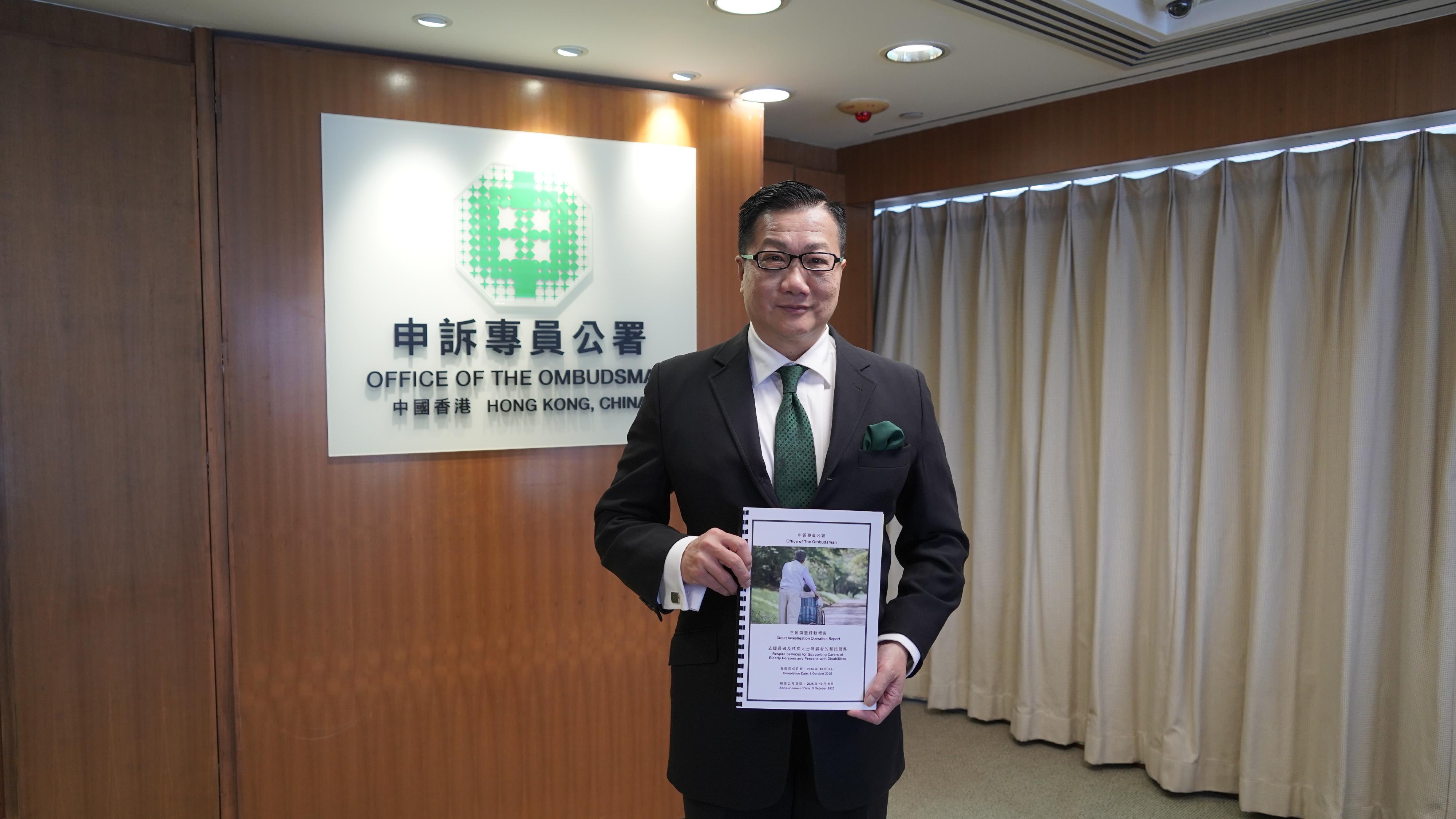
Ombudsman Jack Chan Jick-chi on Thursday called for improvements in respite services for carers of elderly persons and persons with disabilities, noting that there were at least 15 incidents that led to injuries or death in the past three years.
Chan made 25 major recommendations to the SWD, including requests for service providers to review the necessity for prior interviews with applicants, and encourage streamlining of application procedures as far as possible, such as conducting telephone or video assessments.
He also suggested the department thoroughly review the current medical exam requirements imposed by all service providers and any providers requiring additional exam items beyond the basic scope must justify the necessity and obtain prior approval from the SWD.
“Respite services offered by service providers are directly or indirectly supported by public funds through different forms of government funding. Therefore, it is entirely legitimate for members of the public to expect these publicly funded providers to offer reasonable services to carers,” Chan said.
Recognizing the current-term government’s efforts to strengthen the support for carers - including setting up the 24-hour designated hotline for carer support and an information gateway for carers - Chan highlighted two major problems involving respite services after the Office of the Ombudsman conducted a direct investigation.
"First, the service utilization rates vary significantly across districts, and service distribution is uneven,” Chan pointed out.
The office found that the overall utilization rates of respite services remained persistently low. In the past few years, the average utilization rates ranged from only 50 percent to 60 percent for the elderly, and were even lower for persons with disabilities at only 10 percent to 20 percent. The utilization rates of certain providers and districts are below 10 percent, or are even at 0 percent.
ALSO READ: Time to care for our carers
On the whole, utilization rates varied significantly across the 18 districts, according to the investigation, reflecting that the existing resources have not been fully or evenly utilized.
Taking day respite services as an example, the office’s investigation showed the average utilization rates across the 18 districts in the past few years ranged from 20 percent to 138 percent for the elderly, and from 4 percent to 63 percent for persons with disabilities.
For districts with particularly strong service demands, carers will face difficulties in applying for the service, showing that the support for carers remained inadequate.
The second problem involving respite services was that “some service providers have a poor record of providing services, are suspected of being unduly selective in admitting applicants, and even create unnecessary obstacles for service applicants,” Chan said.
The consolidated findings revealed that many service providers will assess the physical and mental condition of applicants before deciding on whether to admit them, by requiring them to attend an in-person interview at the premises before submitting a formal application. For carers who need the services urgently, the requirement of a prior interview could cause frustration and additional stress.
Some service providers required applicants to undergo additional medical examinations at their own expense beyond the basic scope specified by the SWD, including a chest X-ray, blood and urine tests, physiotherapy and even mental health assessments, which would create unnecessary obstacles and financial burdens for carers.
“The SWD currently permits service providers to impose extra requirements for medical examinations without clear regulations, and it is difficult to assess whether these extra items are necessary,” the investigation showed.
The office’s investigation officers had conducted multiple covert telephone operations, calling the hotline and 46 day care units and residential care homes disguised as carers to enquire about respite service vacancies, application procedures, ancillary facilities and fee structures.
Eight site inspections were also conducted to understand the actual enquiry and application handling by different types of service providers and the hotline.
The covert telephone operations also highlighted that some service providers refused to disclose vacancy availabilities to carers or even rejected their applications for different reasons, while some declined applicants who wished to use respite services for only a few days, or only accepted application for use of respite services for months.
Chan pointed out that the low utilization rates were partly due to the lukewarm attitude of some service providers, their improper handling of service enquiries and applications, suspected undue selection of applicants and even creation of unnecessary obstacles for service applicants, and not attaching importance to updating vacancy information in the enquiry system.


